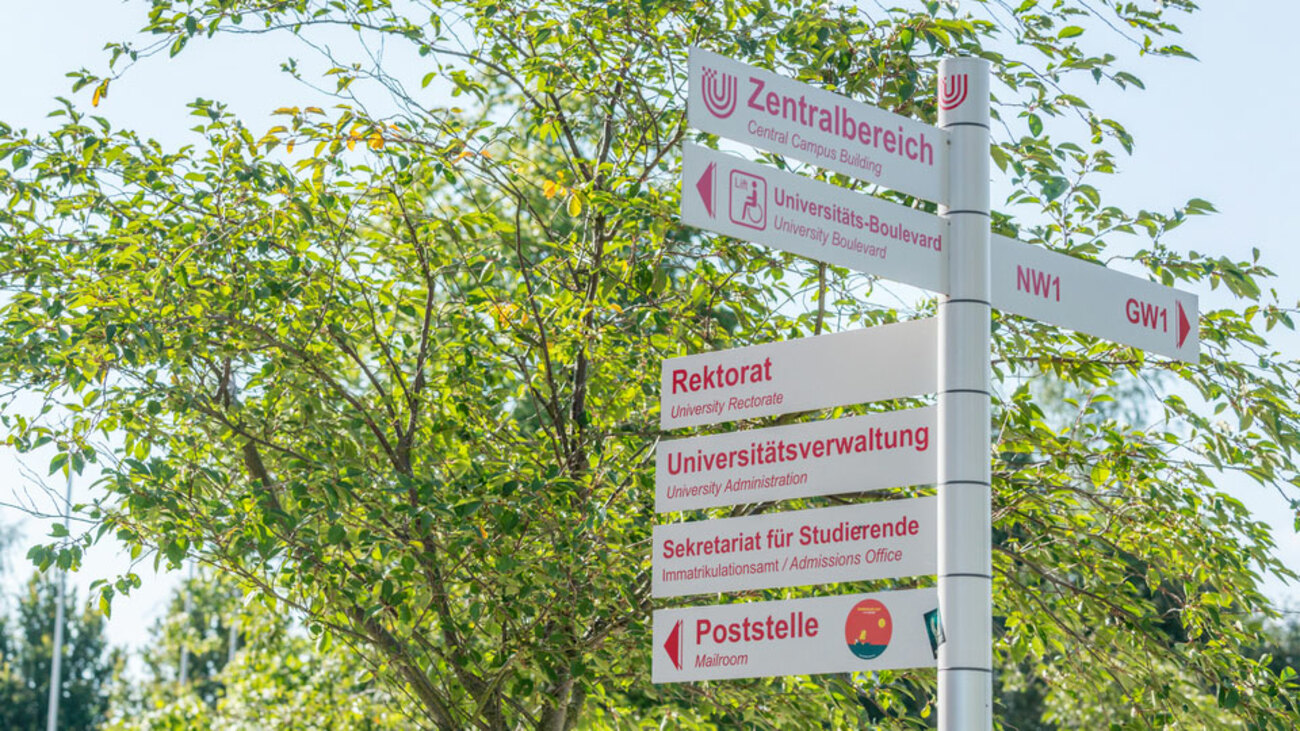
© Universität Bremen
Studying – And Then? Four Graduates Tell Us All
The step from studying to working is often a challenge for university graduates. But there’s no need to panic – help is available.
What career can I pursue with my degree? When do I need to start applying? Those are only two of the many questions that students ask towards the end of their degree. The University of Bremen offers various consultations options for this exciting phase. We will present several of them at the end of the article. We also spoke to four University of Bremen graduates about their personal experiences – as a source of inspiration and strength for everyone facing the transition phase.
Katja Wille, 34 years old, Social Media Manager
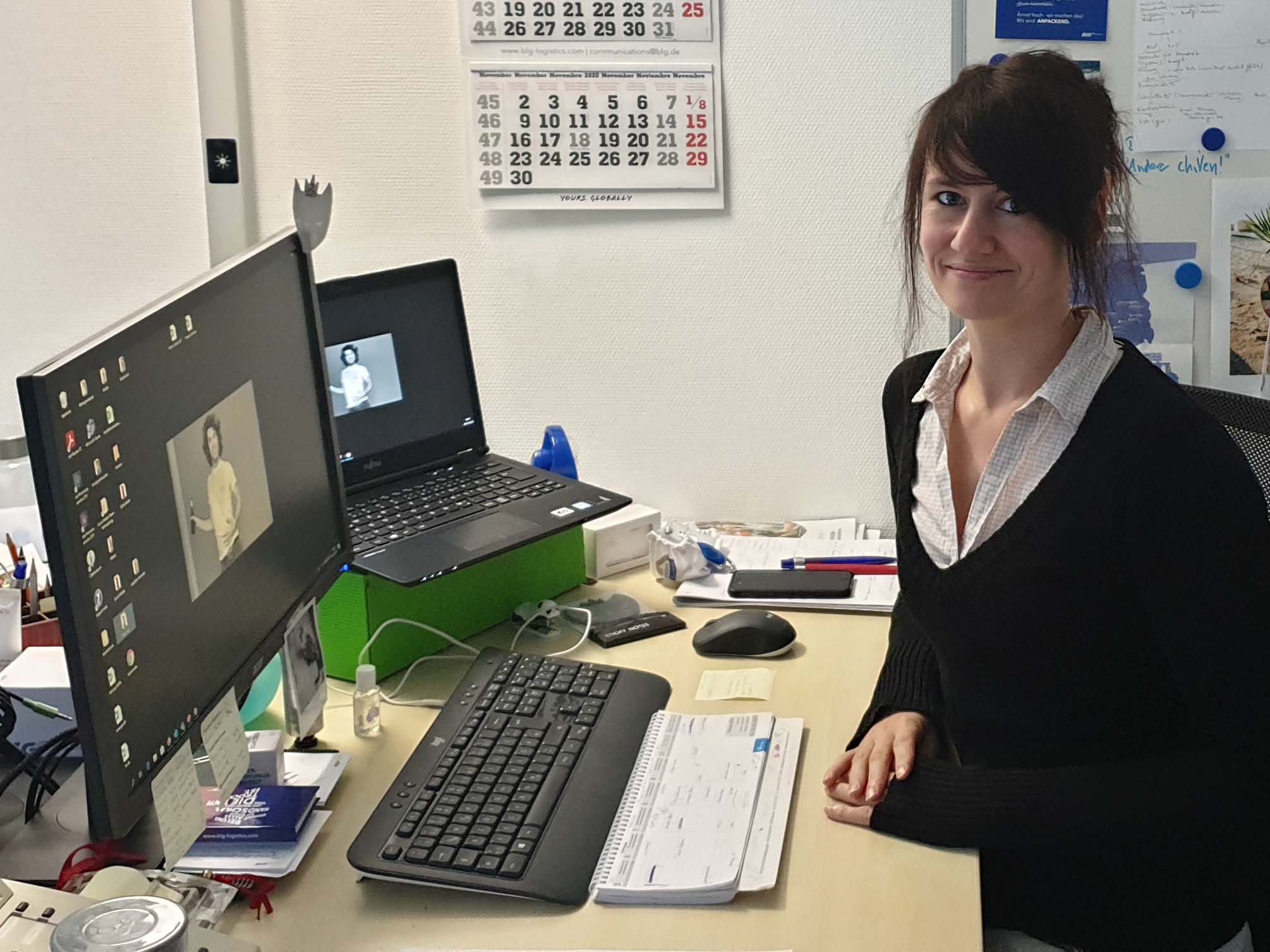
© privat
The 34-year-old Katja Wille has found her dream job. And she found it despite the fact that during her degree she often heard comments such as “you can only became a taxi driver” based on her choice of subjects.
Starting her career directly after her studies – that was Katja’s plan. That is why she initially took on an assistant role after her bachelor’s degree in German Studies and Philosophy and gathered work experience there for around half a year. However, her goal was a different one: “I wanted to become a journalist. I had been sure of that since doing my school qualifications,” explains Katja. That is how she came to change her job and start a traineeship as a journalist with a newspaper in Bremen.
Never Lost Sight of the Goal
During her traineeship, the field of social media became ever more significant. Katja worked in the field intensely and quickly realized that she enjoyed such work. After her time as a trainee, she decided to take on a role with an agency, where writing texts was one of her main tasks. However, her interest in strategic social media marketing increased. “I followed this passion and never lost sight of the goal,” she states. The reward for her persistency is that she is now the social media manager for a large company in Bremen.
Looking back, Katja is thankful for the help of her friends and her mother. They supported her when she was putting her application documents together and sent her suitable job advertisements. It wasn’t an easy time – there was a great deal of competition.
Nervous During Interview
The more nervous she was during her first interview. Yet it still ended well and she admits to being a little happy about the transition back then: “I mainly found my degree to be fun and the thought of no longer being on campus, in the Mensa cafeteria, or the library, was a little strange. Uncertainty played a role. But it was also a good feeling to move forward and not only have to think about credit points.”
Benjamin Wagner, 31 years old, Machine-Learning Engineer
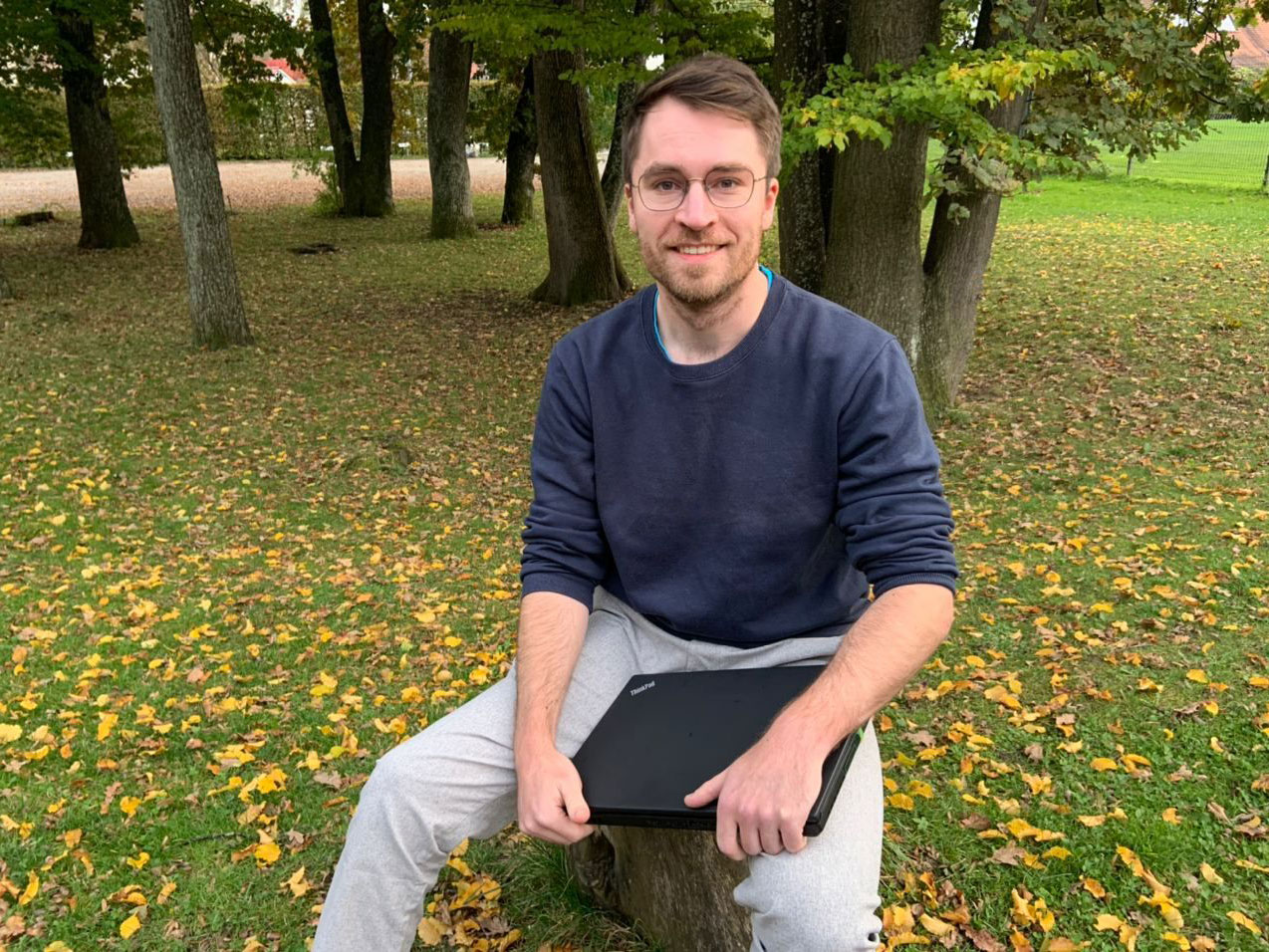
© privat
Benjamin Wagner studied Mathematics and Computer Science at the University of Bremen. He completed his master’s degree in January 2019 and has been working as a machine-learning engineer for a technology company in South Germany since then. As the majority of his family and friends live in the south of Germany, Benjamin quickly knew that he would like to find a job there after his degree. “I definitely wanted to work on the interface between artificial intelligence and autonomous driving. Luckily, that worked out well!” states the technology-enthusiast happily.
Stressful Traveling Time
However, it was a long journey until he reached his goal – literally. Looking for a job at the other end of Germany whilst working on his master’s thesis and doing his student job required a great deal of organization and several trips back and forth. That’s why Benjamin found that period to be stressful: “I remember that I was extremely happy back then to only have to concentrate on one thing going forward,” he reminisces.
When we ask Benjamin what helped him during the stressful final phase of his time at university, he tells us of a friend with whom he was able to talk. They supported each other as he was in the same situation as Benjamin at the time.
Preparation with the Help of MOOCs
One of the things that he used to prepare for working life was “MOOCs.” The “massive open online courses” offer participants a quick insight into various topics. The fields of mathematics and computer science were particularly interesting for Benjamin. Examples of large German platforms that provide MOOCs developed by universities are iversity and MOOIN.
A great weight was lifted off his shoulders as soon as he had finished his degree and his dream job began only a few days later. “I was, however, a little sad because I always enjoyed studying at the University of Bremen. I especially liked the freedom that you have in shaping your course of studies. You don’t have to follow a fixed schedule but can choose according to your own interests,” he explains.
Uli Bunsmann, 33 yeras old, Social Media and Community Management
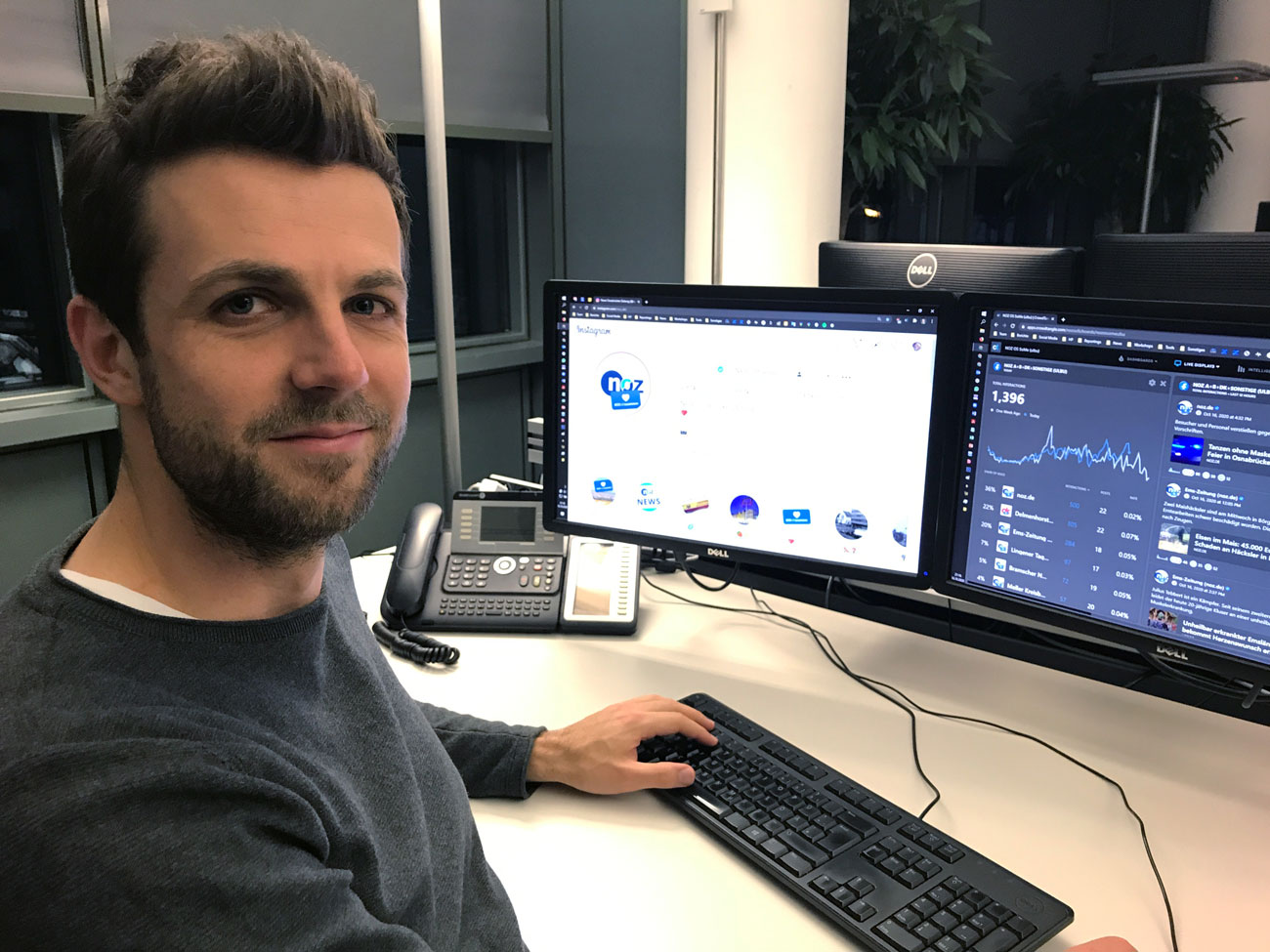
Going back to his desk after many years of work and writing his bachelor’s thesis – that was Uli Bunsmann’s idea. He definitely did not go down the traditional path. The 33-year-old studied Sociology as a major at the University of Bremen. After his fifth semester, he started a traineeship as a journalist with a regional TV channel and then interrupted his studies to start working as a video journalist. Uli got into the trainee program through an obligatory internship, which he had previously completed at the TV offices and where he obviously left a good impression.
Postponed Bachelor’s Thesis
“Looking back, the start to my working life as a trainee was an extremely educational period, in which I always had the feeling that I had made the right decision for myself - despite a high workload. Nevertheless, the postponed bachelor’s thesis was always at the back of my mind,” he explains.
After his traineeship, he worked as an editor and host for the same channel before he returned to his thesis after a total of three years away. But he couldn’t keep away from the practical field entirely – Uli continued to work as a freelance online editor and host. His path finally led him to the digital editorial department of a regional media outlet in Osnabrück. He specialized in the fields of social media and community management over the years there.
Work Experience More Important than Formalities
With regard to the question whether the number of semester he studied has ever played a role at any point, Uli answers; “No. Work experience was always more important than formalities.” Constructive criticism from colleagues and especially previous experience from internships helped Uli with the transition from his degree into the working world.
Katharina Stüwe, 28 years old, Online Marketing
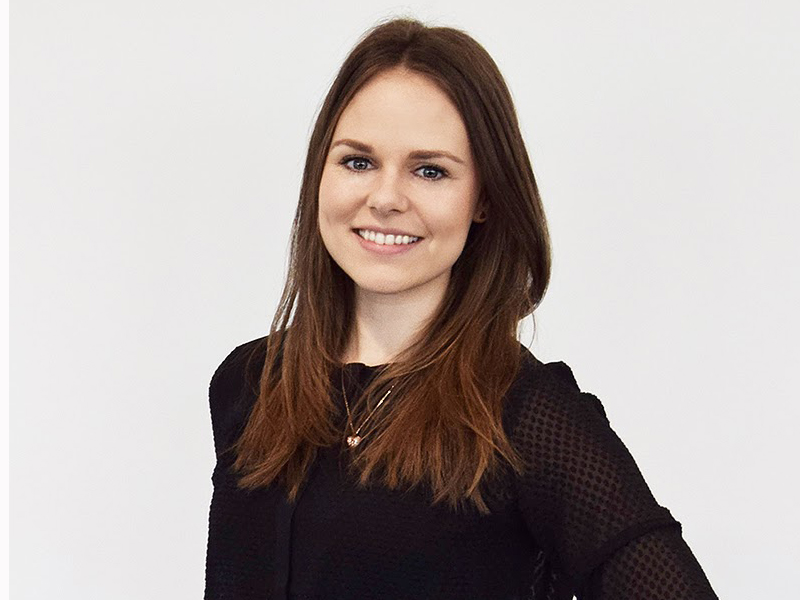
© privat
With one more semester then planned but with her sights on a job, the 28-year-old Katharina Strüve graduated in 2017. After her bachelor’s degree in Media and Communication Studies and German Studies and the subsequent master’s in Media Culture, the marketing enthusiast dove right into working life.
“I was very scared of being without a job after my studies and that’s why I started to look for suitable job advertisements really early,” Katharina remembers. And that was rewarded – she got a trainee job in online marketing for a Bremen start-up. It was important to her that she had a fluent transition from studying to her job so that she could gain work experience in marketing as soon as possible.
An Entirely Different Path
However, Katharina felt that the job was a little too uncertain. Additionally, she was unhappy with her perspectives and development opportunities within the company. That’s how she came to take an entirely different path half a year later and began vocational training as a social insurance case manager. She successfully completed her training in the summer of 2020 but has now returned to her original field of work. “I very surprisingly received a job offer in the field of online marketing and am very happy about it. I can now optimally combine my knowledge from vocational training and my degree.”
When we ask Katharina for tips for successfully looking for a job, she tells us that when she stumbled across a job advertisement that she found interesting, she usually tried to find out more about the job on offer. Via contacts and her former master’s thesis supervisor she gained information about the advertisement and was therefore better able to decide if it was right for her.
Open Eyes and Ears
Generally speaking, she went on the search for a job with open eyes and ears and finds that this is one of the most important points in being successful. “Sometimes, the job offers hold more potential for you than can be seen at first sight. That’s why you shouldn’t reject them immediately if you do not fulfil one requirement,” explains Katharina.
Support Offers at the University
The University of Bremen Career Center can help you during the transition from studying to working. Events on topics such as applying online, assessment center training, or starting your career with confidence and success are continually offered. At the start of March, a workshop series on the topic of tools for starting your career for natural scientists and engineers and those from the humanities and social sciences will begin. The career orientation offices of the individual faculties also provide support for the transition into the working world. The staff there can help with the preparation for, planning, and completion of an internship and career orientation.